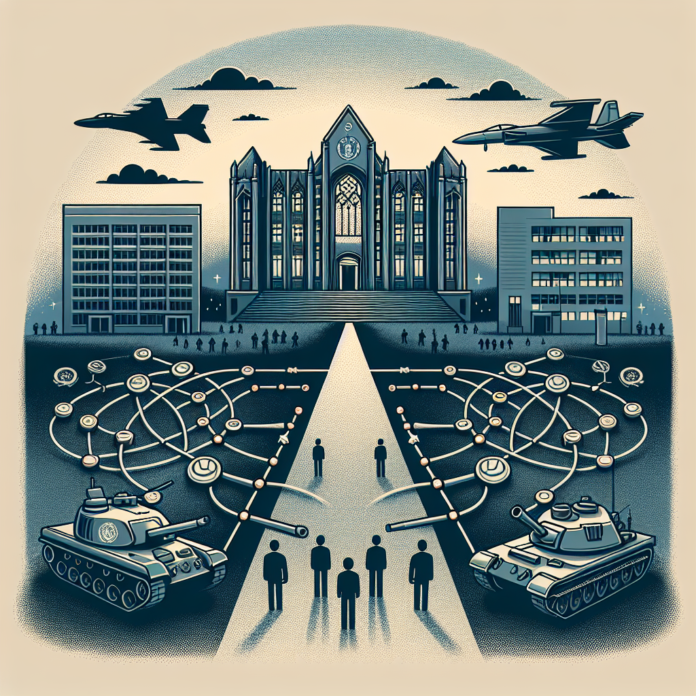Exposing Universities’ Dependence on the Military-Industrial Complex
The forceful suppression of divestment protests at universities like the University of Chicago and UCLA has revealed a harsh reality: the deep entanglement between higher education institutions and the military-industrial complex. University officials, under the guise of protecting their institutions’ missions, have employed violent measures against students advocating for divestment, particularly in solidarity with Gaza. This crackdown reflects the universities’ reliance on the war industry, which is integral to their financial and operational stability. American universities are critical to the U.S. military-industrial complex, providing educated personnel, conducting Pentagon-funded research, and developing technologies used in conflicts such as the ongoing violence in Gaza. The financial ties between defense contractors and universities are substantial, with institutions like Johns Hopkins University receiving significant funding from defense contracts, which, in some cases, surpasses revenue from tuition fees.
The relationship between academia and the military is not new. Since World War II, universities have been key components of the military-industrial complex, a relationship that has deepened over time, especially post-9/11. The vast amount of federal research funding allocated to defense underscores the extent of military influence in academia. Universities, by engaging in Pentagon-funded research and fostering close ties with weapons manufacturers, have become crucial to sustaining the military’s operations and, by extension, conflicts like those in Gaza. These partnerships not only provide the military with technological advancements but also secure a pipeline of future employees through scholarships, internships, and recruitment efforts targeting students.
The article argues that the university’s role in this complex is not peripheral but central, making divestment from the war industry nearly impossible without threatening the institutions’ survival. This symbiotic relationship raises ethical questions about the complicity of educational institutions in global conflicts and the militarization of academic spaces. The crackdown on divestment protests is a stark manifestation of universities’ alignment with military interests, suggesting that the path toward disentanglement would require a radical reimagining of the academy’s role in society.

